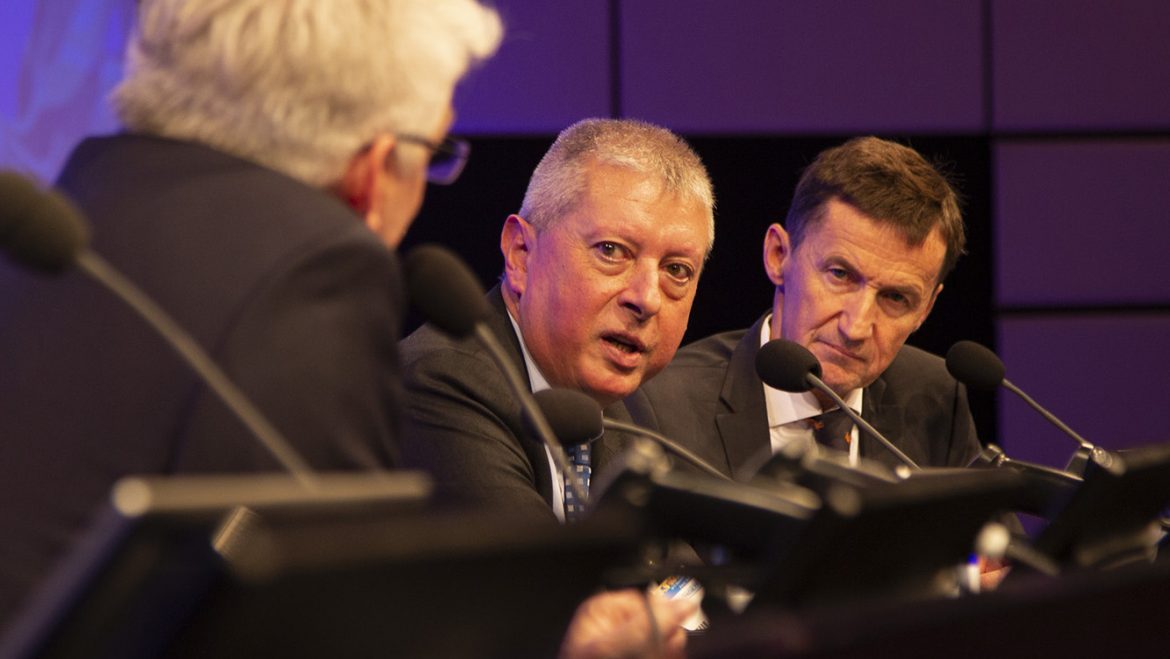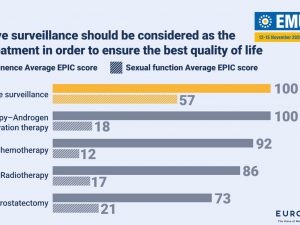EMUC20 is going ahead this year as an online-only Virtual Congress, to be held on 13 and 14 November. Now about seven months after major scientific meetings first started being cancelled, organisers are refining the art of holding a successful virtual meeting, learning lessons from earlier online congresses.
EMUC20, or the 12th edition of the European Multidisciplinary Congress on Urological Cancers, is a collaboration between ESMO, ESTRO and the EAU. It is a major event, in the past regularly drawing over 1000 participants. Registration is now free for members of the organising societies, so high participation figures are expected.
We spoke to Prof. Arnulf Stenzl, member of the EMUC Organising Steering Committee on behalf of the EAU, to find out what considerations were taken into account when developing the new, compact EMUC20 scientific programme as unveiled last week.
Adapting an existing programme
Because the organisers had long hoped that EMUC20 would be taking place in Athens this November, the scientific programme was initially drawn up for three-and-a-half days on location. When the decision was made in August to switch to an online-only format, the scientific programme had to be re-evaluated. Some difficult choices followed.
Prof. Stenzl: “Prof. Alberto Briganti, with the help of the EMUC Scientific Committee, did a marvellous job trying to preserve as much as possible from the original programme as developed by the Scientific Committee. An online meeting in these times brings certain considerations. We ‘focused’ the programme somewhat, and we took the opportunity to introduce topics that relate specifically to uro-oncology in 2020: the impact of COVID-19 and virtual communication with our oncology patients.”
Lessons were also learned from other major virtual congresses, like EAU20 earlier this year. For instance, EMUC20 will have afternoon and evening sessions, and none in the morning.
“Virtual meetings need to be a little shorter,” says Stenzl, “and participants want to have the advantage -since they are not traveling and are staying at home- of being able to do some clinical (or private) errands before diving into advanced, high-quality online education like EMUC20. A shorter meeting also helps keep it more palatable to sit behind our computers.”
“By shortening each of the blocks, we also leave a bit more room for online discussion. This is particularly important now that we can’t meet face to face.” EMUC20 will feature a Q&A feature that lets participants submit questions to the moderators, who can then ask the speakers or discussants.
On the nature of Virtual Congresses
The presentations themselves will be pre-recorded, but with live moderation and with the speakers joining discussion afterwards, if they are available. Asked why pre-recording is preferred, Stenzl said:
“We have seen at the EAU20 Virtual Congress, as well as in other recent large virtual meetings, that it is easier and technically safer to make pre-recorded presentations. This helps maintain time discipline, and makes sure that speakers get the technical help they need. With a subsequent live discussion there is practically no difference from regular meetings, only advantages.”
Notably, EMUC20 will include abstract presentations. New research is something that has been snowed under in recent months and a much-requested aspect at virtual meetings. “Of course EMUC20 will feature (case) discussions, roundtable discussions, state-of-the-art lectures from the biggest names. But sometimes research that might change things in the distant future or represent everyday experience comes through contributions from abstract presenters, including from genuine ‘mavericks’.”
Reflecting on the unfortunate but necessary cancellation of physical meetings, Prof. Stenzl also sees some advantages: “Despite the fact that several polls show that face-to-face meetings are the preferred type of meeting among specialists, this interdisciplinary meeting will allow participants to watch discussions and round tables between key opinion leaders of the key players in various disciplines specialised in uro-oncology, participate in these discussions, and get practical information in a very condensed time frame.”
“Recent meetings have also shown that the number of delegates at virtual meetings can be higher than in the respective physical meeting, so we are able to reach more specialists with our latest scientific insights.”
Prof. Stenzl also points out that the current pandemic causes many problems, dangers and inconveniences, which include a timely and up-to-date treatment of cancer patients. An interdisciplinary virtual EMUC20 meeting is offering oncologists, radio-oncologists and urologists a platform to get the latest news on cancer treatment while it also allows participants to exchange views on how to best provide cancer treatment to their patients despite current restrictions due to COVID-19.


